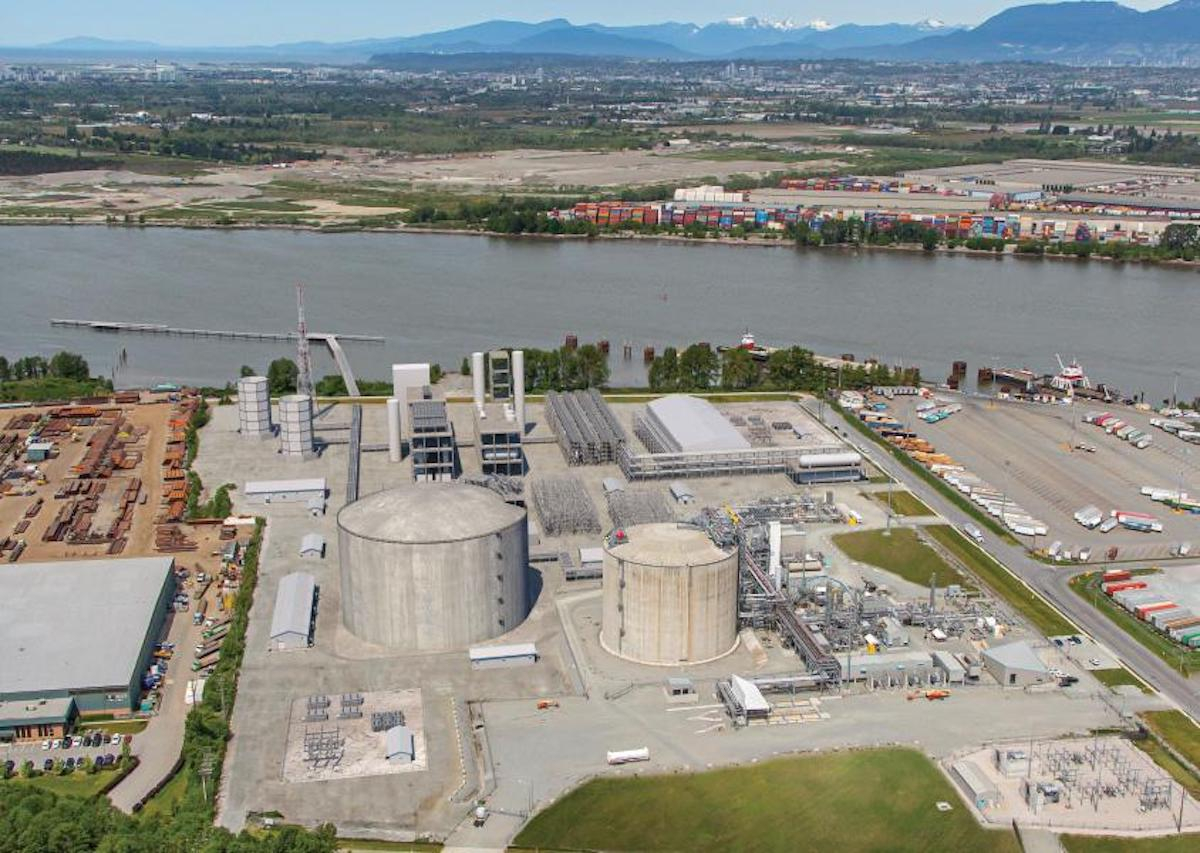Support strong Canadian climate journalism for 2025
The B.C. government is trying to sugar-coat bad climate news with good after making back-to-back fossil fuel announcements last week, environmental groups say.
On Thursday, B.C. pledged to roll out a “backstop” regulatory emissions plan in 2026 in case the federal government’s proposed oil and gas emissions cap isn’t implemented, is scrapped or doesn’t meet provincial reduction targets.
However, B.C.’s renewed vow to tackle fossil fuel emissions came hard on the heels of a decision Wednesday giving the environmental green light for the Tilbury marine jetty liquified natural gas (LNG) project in Delta near the mouth of the Fraser River.
The province’s latest climate commitment is simply “putting lipstick on a pig,” environmental groups allege.
The FortisBC Tilbury project is the first on the coast capable of fuelling LNG tankers and international cargo vessels with fossil gas, and will impair the health of the Fraser River’s fragile estuary and surrounding communities, said Kiki Wood, senior oil and gas campaigner at Stand.earth. It will add as much pollution to the air each year as the entire city of Vancouver, she added.
The project got the go-ahead even though the surrounding cities of Richmond, Vancouver, New Westminster and Burnaby passed motions opposing the gas expansion project citing environmental, climate and economic concerns, Wood noted.
The B.C. government has a pattern of making climate announcements when also approving fossil fuel expansion projects, she said.
Immediately after granting environmental approval to the Cedar LNG marine export terminal last March, Premier David Eby also launched B.C.’s energy action framework.
The proposed framework will require new LNG projects to have “credible plans” for net-zero emissions by 2030 and accelerate the electrification of the oil and gas industry to clean up its emissions, Eby promised.
While the B.C. government may be signalling a commitment to a federal emissions cap, it’s also delayed the rollout of its own made-in-B.C. strategy — originally promised for 2024, Wood observed.
“Gas is B.C.’s biggest climate problem, and a cap on emissions is a good step that needed to be implemented yesterday, not in 2026.”
Peter McCartney, climate campaigner with the Wilderness Committee, agreed, adding B.C.’s announcement that its reduction strategy will act as a fail-safe for the federal emissions cap is largely window dressing.
The province has been promising to implement an oil and gas emissions reduction plan since 2021 and rehashed the same ideas in last spring’s energy action framework, all while granting approvals to projects that will drive up fossil fuel production and emissions in the province without adequate measures in place to abate them.
“It’s pretty clear they are bracing for a Conservative government at the federal level by saying that their [climate emissions work] will continue,” McCartney said.
“It was disappointing to see them kick the can further down the road, until after both the provincial and federal elections,” McCartney said.
“And I’m not sure anything they are proposing is actually going to help us get to the 2030 target.
“There really wasn't very much new in the announcement,” he said.
“I think it’s all just a show for us to look like they're doing something while going ahead with whatever the fossil fuel industry wants.”
Rochelle Baker / Local Journalism Initiative / Canada's National Observer






Comments
“I think it’s all just a show for us to look like they're doing something while going ahead with whatever the fossil fuel industry wants.”
Bingo, you called that one right. This Do Nothing Party is just an extension of the old BC Libs except more secretive and deceiving in their dealings. It's all smoke and mirrors while the BCNDP undermine any attempt to correct the situation and stop the carnage on our lands, waters and wildlife. It will take more than lipstick to make these double uglies pretty, unless pretty ugly counts.